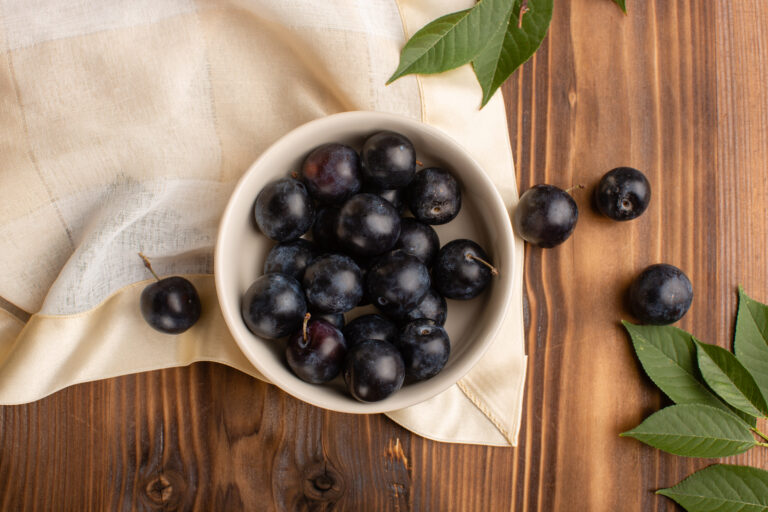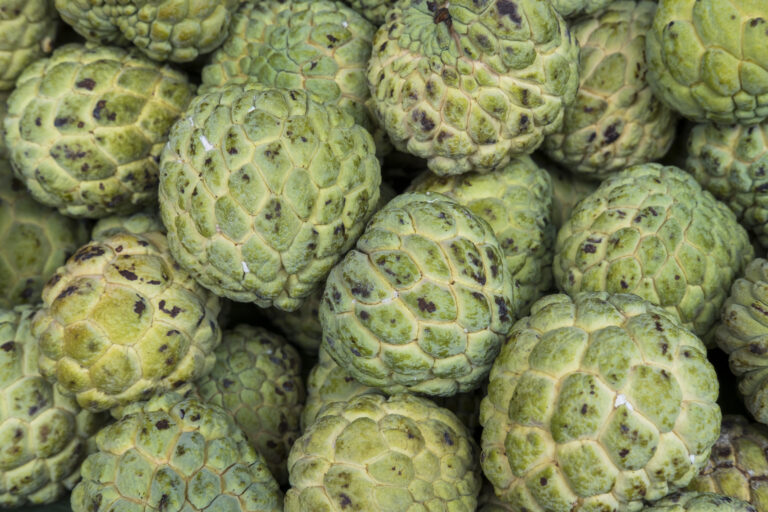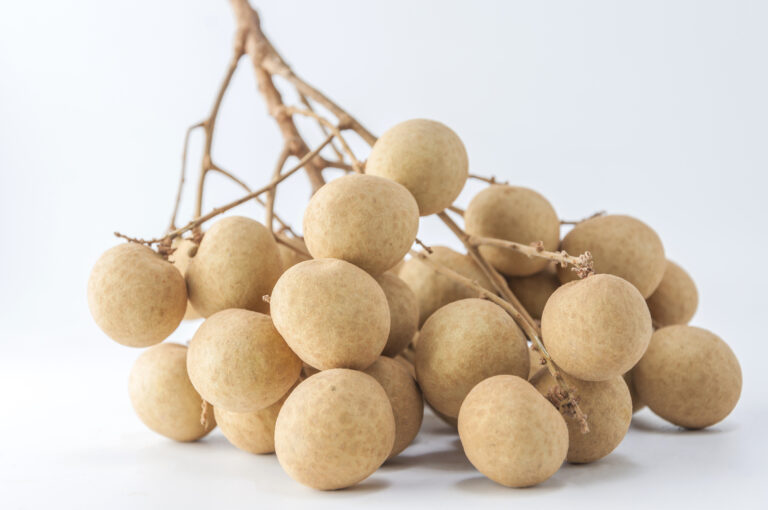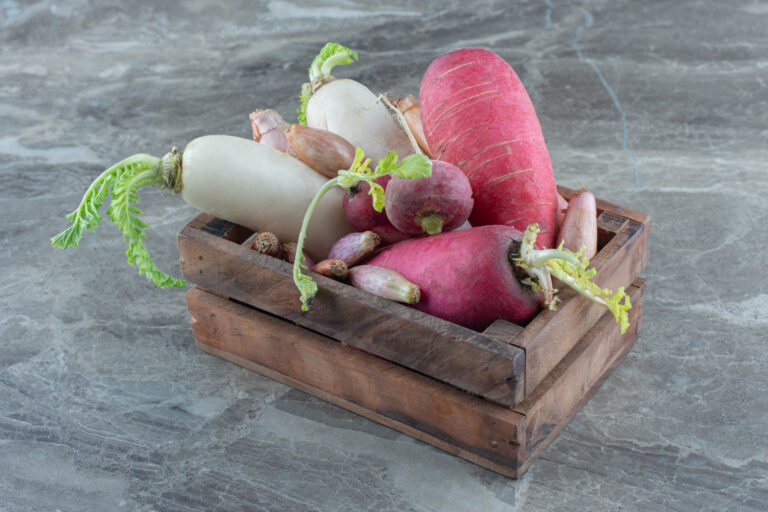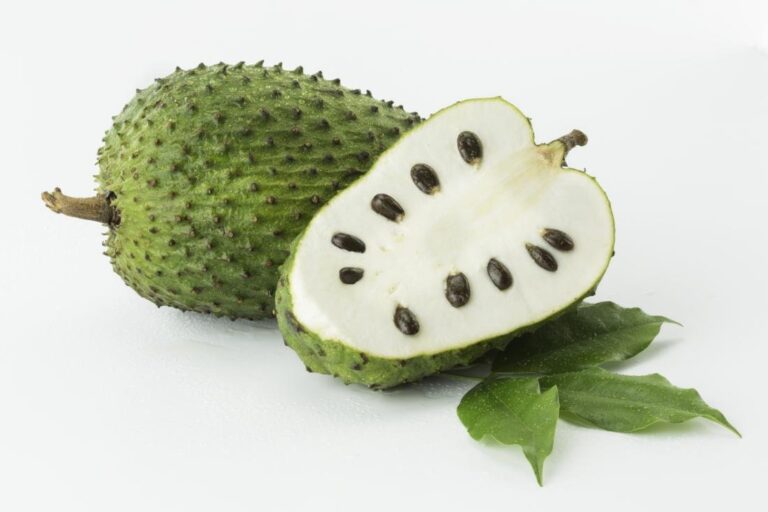Overview
Jabuticaba fruit also known as the Brazilian Grape Tree, is a unique and exotic fruit native to Brazil.
The scientific name of this fruit is Plinia cauliflora, and it belongs to the Myrtaceae family.
What sets jabuticaba apart from other fruits is its peculiar method of growth – it directly sprouts from the trunk of the tree, giving the appearance of grapes growing on the bark.
The jabuticaba tree is a slow-growing evergreen that can reach a height of 10 to 15 feet. The fruit itself is small, typically around the size of a grape, with a dark purple to almost black color when ripe.
The skin is smooth and glossy, covering a juicy, translucent white or pinkish pulp.

Nutritional Content of Jabuticaba Fruit
While the nutritional content of jabuticaba can vary slightly based on factors such as ripeness and growing conditions, here is an approximate breakdown of the nutritional content per 100 grams of jabuticaba fruit:
- Calories: 58 kcal
- Water: Around 80-85 grams
- Protein: 0.6 grams
- Fat: 0.4 grams
- Carbohydrates: 14.7 grams
- Dietary Fiber: 1.4 grams
- Sugars: 9.6 grams
- Vitamins:
- Vitamin C: 23.5 mg (about 39% of the Recommended Daily Allowance or RDA)
- Vitamin A: 0.02 mg
- Vitamin B1 (Thiamine): 0.05 mg
- Vitamin B2 (Riboflavin): 0.03 mg
- Niacin (Vitamin B3): 0.5 mg
- Folate (Vitamin B9): 16 μg
- Minerals:
- Potassium: 92 mg
- Calcium: 45 mg
- Phosphorus: 11 mg
- Magnesium: 9 mg
- Iron: 0.2 mg
- Zinc: 0.1 mg
It’s important to note that these values are approximate and can vary based on factors like the specific variety of jabuticaba, growing conditions, and ripeness at the time of measurement.
5 Health Benefits of Jabuticaba Fruit
Jabuticaba fruit offers several potential health benefits due to its rich nutritional profile and unique phytochemical composition. While scientific studies on jabuticaba are limited, the following are five potential health benefits associated with the consumption of jabuticaba:
1. Rich in Antioxidants
Jabuticaba is known for its high antioxidant content, including vitamin C and various polyphenols. Antioxidants help neutralize harmful free radicals in the body, which may contribute to reducing oxidative stress and inflammation.
These compounds are thought to support overall health and may play a role in preventing chronic diseases.
2. Immune System Support
The significant amount of vitamin C in jabuticaba contributes to immune system function. Vitamin C is essential for the production and function of white blood cells, which play a crucial role in the body’s defense against infections and illnesses.
Regular consumption of jabuticaba may help support immune function.
3. Potential Anti-Inflammatory Effects
Some studies suggest that the bioactive compounds found in jabuticaba may have anti-inflammatory properties. Chronic inflammation is linked to a variety of health issues, including cardiovascular disease and certain types of cancer.
Consuming foods with anti-inflammatory properties, such as jabuticaba, may contribute to overall well-being.
4. Cardiovascular Health
Jabuticaba fruit contains potassium, a mineral that plays a role in maintaining healthy blood pressure levels. Adequate potassium intake is associated with a lower risk of hypertension and may contribute to overall cardiovascular health.
Additionally, the antioxidants in jabuticaba may have protective effects on the cardiovascular system.
5. Dietary Fiber for Digestive Health
The fruit is a good source of dietary fiber, which is essential for digestive health. Fiber helps to maintain regular bowel motions, prevents constipation, and promotes a healthy gut microbiota.
A diet rich in fiber is associated with various health benefits, including improved weight management and a reduced risk of certain diseases.
It’s important to note that while jabuticaba shows promise in offering these health benefits, more research is needed to fully understand its mechanisms and confirm these potential effects.
Jabuticaba Fruit Taste
At its peak ripeness, the fruit presents a succulent and juicy texture, with a translucent white or pinkish pulp that releases a burst of flavorful juice with each bite.
The overall flavor profile is often likened to grapes, although jabuticaba carries its own distinct essence. Some enthusiasts detect delicate floral or musky notes, adding a layer of complexity to its taste.
Enjoyed fresh off the tree, the fruit’s balance of sweetness and tartness, coupled with its unique growth habit, makes jabuticaba a sought-after delicacy.
Outlook
In conclusion, jabuticaba stands as a testament to nature’s wonders. From its captivating growth pattern to its delicious taste and potential health benefits, this Brazilian fruit offers a unique experience for enthusiasts and culinary adventurers alike.
I hope you got the answer to your query ( Jabuticaba Fruit Benefits). Also, check out The Surprising Benefits of Rambutan Fruit.




